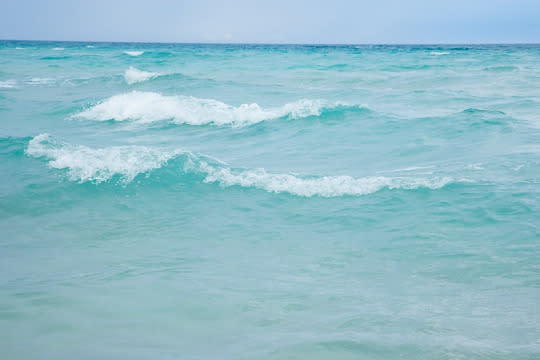This isn't a migrant rescue plan – it's an EU border-control plan

If the shameful inaction of the EU over refugee deaths in the Mediterranean weren’t enough, they’ve now worsened their moral standing with half-truths and misrepresentations.
As news came in that Sunday’s death toll was likely to be around the 800 mark, the European Commission released its ten-point plan to deal with the crisis. There was a lot of talk of countries acting in unity and common purpose, but the language of the proposals was incredibly vague. If you dig into their proposals you see this isn’t about saving lives. It’s about controlling the border.
Strap yourself in for the standard EU jargon: Operations Trident and Poseidon will be “reinforced”, with increased “financial resources” and “assets”. Their “operational area” will be extended, but they will remain within the mandate of “Frontex”.
There’s a lot to unpack there, but the vital part of the puzzle is in the last suggestion. Frontex is a border control programme, not a search and rescue programme. Yes, it must save lives at sea where it is aware they are at risk – that’s a legal obligation. If a problem takes place at sea and it is notified it must divert any boat as far as 100 nautical miles to help out.

But Frontex is not, and never has been, a search-and-rescue operation. As its own staff told me: “We don’t have a mandate of search and rescue”.
Trident and Poseidon are not search and rescue operations either. Trident is the replacement system for Italy’s commendable and civilised Mare Nostrum operation, which conducted search-and-rescue all the way up to the Libyan coast. Frontex always made it clear that Trident was focused on “border control and surveillance”. It stays within Europe’s waters. Whoever happens to be detected will be saved, but that is not what they are out there looking for.
You’d need to throw a lot more money at the operation before it started to approach the scale needed to deal with the problem. Trident is tiny, with only a third of the budget of the Italian operation. It has just seven boats, two planes and one helicopter.
The Commission’s mention of extending the “operational area” is the only glimmer of hope. I’ve asked them specifically what this means, but no-one has gotten back to me yet.
Once the vague promise of the Frontex programme is out the way, the European Commission settles in for what it really wants to talk about: immigration.
Vessels used by smugglers will be systematically destroyed. It is interesting to see the word ‘systematically’ suddenly rear its head. It is a word which is absent from discussion of finding and rescuing refugees. Europol, Frontex, Eurojust will meet regularly to liaise on stopping smugglers. Their absurd boys-and-their-toys names tell you everything you need to know about their function. Transformers cartoons have a lot to answer for.
Member states are suddenly being told to “ensure fingerprinting of all migrants”. An “emergency relocation mechanism” is to be considered. There’ll be a new “rapid return” programme for “irregular migrants” coordinated by Frontex.

Fingerprinting of all migrants, rapid return schemes, bolstering resources under the mandate of a border-patrol programme: this is not a humanitarian response, it’s a border-control response. It’s like putting the Home Office in charge of disaster relief.
This is the EU’s response to the deaths of 1,000 people in one week alone. The numbers have shot up since they failed to replace the Italian operation with one of their own. These deaths are their responsibility. As usual, they have failed to live up to it.
Supporters of the EU often claim that it represents the best way for the world to deal with the multinational problems it faces, such a global terror or climate change. What better example of that is there than refugees, fleeing war and poverty, for the human rights of Europe? And yet the EU utterly fails to live up to its own rhetoric when the time comes to do so.
British eurosceptics, however, would be wise to hold fire. Britain took a lead role in arguing for the search-and-rescue operations to be scrapped, with the absurd argument that it encouraged refugees. That argument, and the EU’s acceptance of it, was a moral disgrace.
The only glimmer of light is the call for an emergency meeting of EU leaders on Thursday. We can only hope they emerge with something more honourable from that meeting than they did from this one.

 Yahoo News
Yahoo News 